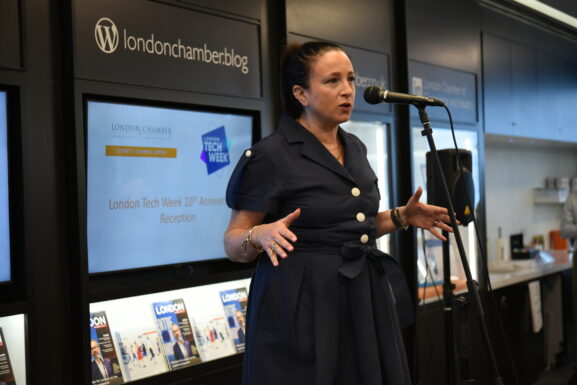Tech trends for 2015: Open data
“Open data is the raw material for open innovation”
The world is becoming more and more connected and with governments across the globe, from the UK through to Sierre Leone, releasing new data to the public on a daily basis, in 2015 we will see businesses and social entrepreneurs maximise upon the opportunities presented by open data.
A term which refers to data which is freely available to re-use such as statistics on crime levels or the number of schools, open data has been continuing to expand in line with web developments and new government-backed open data initiatives such as Data.gov.uk which launched in 2010 and Sir Tim Berners Lee’s Open Data Institute, as well as the work of the UK’s new Digital Catapult Centre. The Open Data Institute has been actively calling for the benefits of open data to be realised and in its reportOpen Data Roadmap for the UK released this week it outlined recommendations for a new chief data officer, investment in data training and a mandate that public procurement contracts should require the release of open data.
Whilst open data is by no means a new idea, in recent months start-ups have begun to see the commercial potential of free-to-use data and in 2015, these ideas will gain pace. High-profile government leaders have also picked up on the trend and are listening to the Open Data Institute’s calls. In an announcement made today, cabinet office minister Francis Maude detailed plans for greater public access to government data. Maude explained that, as part of a wider open data strategy, the first step will be to make real-time information on flooding risks available to create apps and platforms that will collate the data to offer details on the likelihood of a flood in a certain area.
But government plans for open data won’t stop there; Maude outlined that government and local councils are set to routinely release mass data sets that have “real-world applications” on information ranging from issues on busy trains, to using stats on property ownership to make residents aware of empty or rundown houses, to vacant parking spaces in towns and city centres.
Although several of these advancements in open data will support the growth of new tech businesses and platforms, open data also has a far-more wide reaching impact to supporting emergency services; data could be interpreted to identify the location of emergency response equipment, and major crises. For example, over in West Africa, IBM has been utilising open data to help Sierra Leone and Nigerian governments to contain the spread of Ebola. It uses a mobile system which allows citizens to report Ebola-related matters via text or call and this data is then visualised to create location specific heat maps that in turn provide location information to local health authorities.
How it works
Defined as data that is not restricted by copyrights, permissions or patents, open data extends only to non-personal, non-sensitive data – information like the list of schools, crime rates or the performance of a local council – and in the UK the use of open data is overseen by the Transparency Board. Using open data, people are able to create web applications that combine data or codes from two or more sources; giving data a new meaning or functionality beyond what was originally intended.
As mentioned above in Maude’s announcement, it would appear that the uses of open data are limitless and there are several areas where open data can support and improve social and economic conditions. For instance data could be used to improve parking; data held by councils could enable motorists to find parking spots in real time, or it could be used to combat antisocial behaviour; councils could have to share data on how they’re tackling problem neighbours.
Professor Sir Nigel Shadbolt, chairman of the Open Data Institute, has previously said of open data:
“Open data is the raw material for open innovation. We have seen individuals, start-ups, small and medium enterprises, FTSE 100 companies, local and national government all create value.
“There is a lot that still could be done at local authority level in areas such as planning applications, as well as with Ordnance Survey data.
“It is a cultural challenge to ensure that data is routinely released, and requires continued commitment at the highest levels of government.”
source: startups.co.uk



